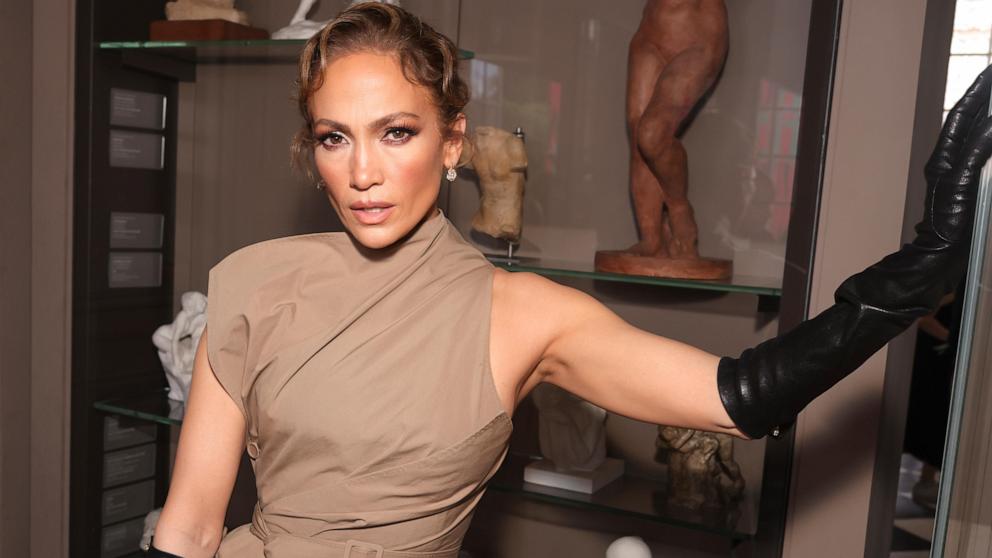Back in 2016, US actress Blake Lively said in an interview with “Marie Claire” that she had realized that her acting colleague Ryan Reynolds was “the right one” for her.
“I knew he would be my best friend for the rest of my life,” she told the media outlet.
“That was the greatest thing for me. I had never known a friendship like the one with him. I could like him as much as I loved him.
Do you feel the same way about yourself?
Here are nine telltale signs that you’ve found true love, according to psychology.
1) They are genuinely interested in your life and encourage you to pursue your goals
When tennis icon Serena Williams met her current husband, internet entrepreneur Alexis Ohanian, she knew immediately that she would marry this man, even though she knew almost nothing about him.
“I didn’t know his world at all,” she told InStyle (via People Magazine), “but I’ve always been tech-savvy. I had made a few investments before I met him, and I wanted to know more.”
The two began to talk to each other – quite casually, as friends.
“I got really hot when he told me all this,” she said, laughing. “After that, we just kept talking and then, I don’t know – I love his world.”
Even though she is the one with the celebrity lifestyle and is constantly the center of attention, Williams was genuinely interested in how Ohanian lived and what passion he pursued.
“Having a supportive partner makes it easier to pursue your dreams because you don’t have to deal with the added stress of constantly trying to defend what you want to do with your life,” says relationship author Priti Serai of Love Panky.
“A good partner will not only encourage you and listen to you, he will also appreciate your motivation and even find it sexy.”
Sounds exactly like Serena.
2) They complement each other – but do not complement each other
Many of us grew up with the idea that one day we would find our soul mate and that he or she would complete us.
Movies, music, and mainstream culture force this fantasy on us, but many of us are slowly realizing that a partner can enrich our lives, but not just be them.
“Relying on your (partner) to fulfill you can lead to an overly dependent relationship in which you don’t grow as individuals,” says psychology expert Suzann Pawelski.
Rather, complementary relationships are about two people complementing each other in a way that makes them stronger together, emphasizes Dr. Ryne Sherman.
“It’s about finding areas where you can encourage each other’s strengths, support each other’s weaknesses and share each other’s values.”
3) Other people’s mistakes don’t bother you
Speaking of weaknesses, we all have them. But if you are able to understand and accept each other’s flaws, then you are on the right track when it comes to being in a relationship with the right partner.
“Even in good relationships, about 70 percent of conflicts are permanent and never resolved,”
says Dr. Alice Boyes. “The cause of these splits is often characteristics that one partner has (or doesn’t have) that upset the other.”
When it comes to improving the experience of a relationship, Sills says it can often be beneficial to be more accepting of your partner’s strengths and weaknesses rather than continuing to try to get them to make fundamental changes.
The idea of the perfect partner is, frankly, a myth, adds Wendy L. Patrick, JD, PhD.
“There is no such thing as a perfect relationship, but a lover who seems too good to be true usually is,” she says.
“But depending on how strong your relationship is, your partner’s mistakes can be fatal to a good relationship.”
A psychological study conducted in 2020 examined how couples learn to live with each other’s flaws. The way we accept others stems from the way we accept ourselves.
Researchers examined the relationship between self-compassion and acceptance and found that increasing acceptance of one’s own imperfections also increases acceptance of the imperfections of others, including one’s partner.
Patrick says, “In committed relationships, accepting the good and the bad – both in yourself and your partner – can promote a healthy, realistic and respectful relationship.”
4) You can be yourself


Licensed social worker Leah Aguirre has an interesting story to tell from her time as a dating patient.
She was on a date and remembers giving her date a false identity as a party girl—basically, someone who was extremely extroverted and enjoyed going out and flirting with men.
“But that couldn’t be further from the truth. That memory actually comes to mind a lot because I remember knowing full well at the end of the date that he wasn’t interested,” Aguirre recalls.
“And what upset me most was the way I tried to transform myself into something far from who I really was for this stranger.”
“It’s damn difficult to feel comfortable or safe in a relationship when you can’t be yourself or feel yourself,” says the state-certified social worker.
“I’ve learned through my practice in particular that this is common among singles when dating and also people in relationships. This is a call to action to be your authentic self.”
True love isn’t about hiding what really makes us who we are, says relationship author Brittany Chaffee.
“Instead of thinking about falling in love with people because we think they are the best in the world, we should think about loving them because they enable us to be fully ourselves.”
5) They help us a lot to feel validated
A committed relationship isn’t always all fun and games. You want someone who is capable of being serious when the situation calls for it.
I believe that the recognition they give you is an extremely important value.
“The understanding and care required for intimacy is fairly straightforward, but the key here is a less common concept: validation,” says Dr. Dave Smallen.
“When we feel validated, it means we feel that another person values our feelings and views – they respect our reality as legitimate, even if they cannot relate to it. In other words, they take us seriously.”
For example, when we confide in our partner about a difficult experience, they should offer comfort, especially by saying things like, “Wow, it makes sense that you felt that way,” says Smallen.
“Then we know that we have felt validated. When another person talks to us explicitly about our difficult feelings in this way, it actually helps us overcome them.”
6) They are able to manage conflicts with you
True love is not just about butterflies in your stomach, the marriage proposal, the wedding and the honeymoon.
True love really means a deep, emotional connection that goes beyond superficial attraction,
says the therapy editors of BetterHelp.
“It’s about mutual respect, trust and the willingness to resolve conflicts together. A balanced perspective and open communication are key elements in understanding what true love really means.”
True love means that you handle conflicts with an adult attitude.
This includes maintaining a balanced perspective, not being afraid to have open conversations, respecting boundaries and working toward the common goal of understanding each other on a deeper level.
7) You both see your relationship as long-term
To find true love, you have to want to hold on to it and make your life out of it.
So you naturally think long-term and about the bigger picture of your life, says Arianna Williams, LPC, CCTP.
“When you envision your future, your partner is an integral part of it. You make plans together, taking into account each other’s needs and desires, and envision a lasting future together.”
8) You really trust them
Without trust there can be no true love.
Trust essentially gives us a sense of security because we trust that our partner will stand behind us and stay faithful to us through thick and thin, say Rob Pascale and Dr. Lou Primavera.
“It allows us to express our thoughts and feelings openly and honestly because we see our partner as supportive and not afraid of being judged, ridiculed or rejected.”
Trust is the basis for commitment.
“Only when you feel like you can trust someone are you able to really commit to that person.”
9) There is a feeling of “coming home” with them
In an interview with Oprah Winfrey, comedian and actor Jerry Seinfeld said that his wife Jessica always felt like home to him.
“It’s not the conversation or the attraction you feel, it’s just that feeling of comfort when someone is in your house,” he said.
“When someone comes into your house and you still feel comfortable. I don’t know what that is, but I just know that this is someone I want to spend the rest of my life with.”
Seinfeld continued:
“I had experienced all these exciting things. And I never wanted to get married. I don’t know why, I just never did. (And I thought) ‘If I don’t want to get married and I’m sick of being single, what am I going to do?’
“Because I didn’t have that feeling with someone that makes you want to keep going. So when I met her, I thought, ‘You know what, we could have a life together.’ And so she gave me a life to live.”
Home is where the heart is.




